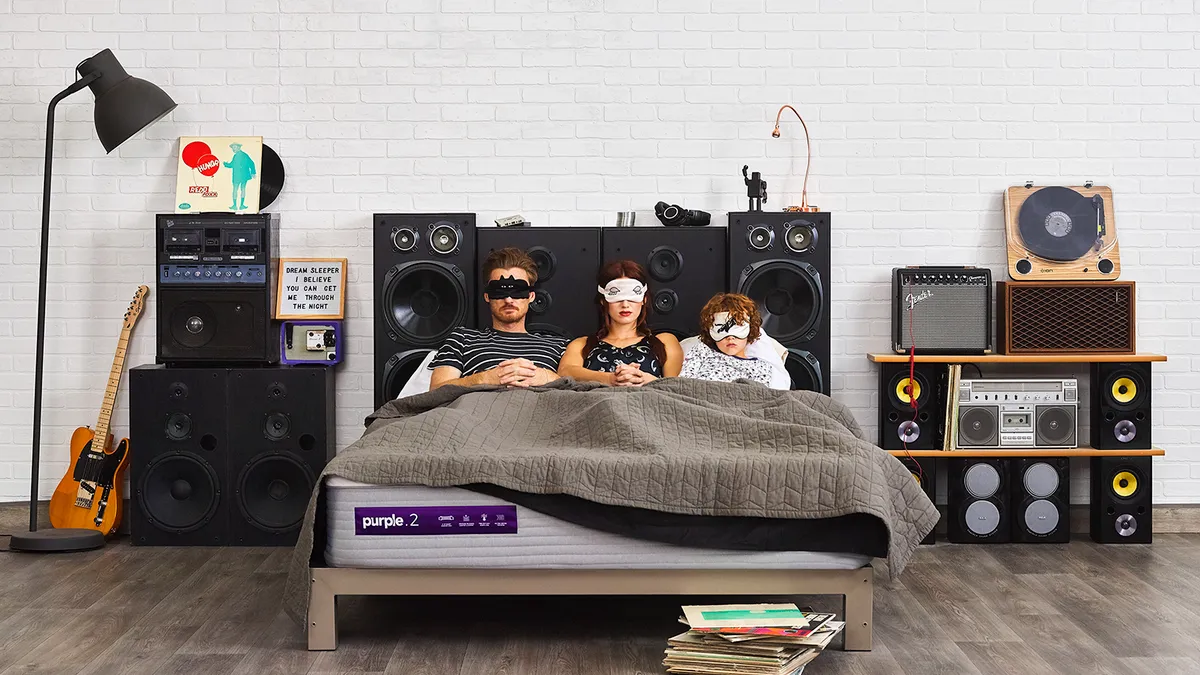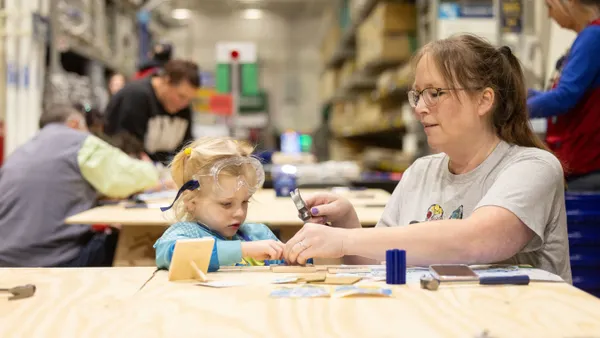Dive Brief:
-
Purple, a direct-to-consumer company that got its start in mattresses, unveiled the Purple Plush Pillow this month. The pillow features a zipper that allows users to adjust between a soft and a firm feel.
-
The Purple Plush Pillow, priced at $49, is more affordable than the company's original Purple Pillow, which is priced at $99. The new plush pillow features cooling nylon, moisture-wicking technology and "smart fluff" (interlocking poly-fiber balls), while the original Purple Pillow excludes fluff and instead is made of "Hyper-Elastic Polymer," according to the website.
- Since its founding in 2015, Purple has expanded beyond its initial mattress offerings. The company now also sells pillows, bamboo sheets and pet beds, among other things.
Dive Insight:
Purple's move, adding another pillow to its product offering, mirrors a trend followed by many rival mattress startups — aiming to transform from a mattress company into a complete sleep company.
When Mattress Firm filed for Chapter 11 in October last year and Innovative Mattress Solutions filed last month, they had been leaving market share up for grabs in the mattress space for years. Meanwhile, as the success of Casper, Purple, Tuft & Needle, and others shook out, competition heated up. Now, the space is saturated and continues to crowd. Expanding into other categories may be a means for survival.
Nest Bedding, for example, which initially only sold mattresses, now offers a variety of products, including a sleep apparel line. Nectar Home has also expanded beyond mattresses with its rug brand Wovenly and Casper earlier this month unveiled a smart nightlight called Casper Glow, which can be connected to an app, one of the first technological moves among the direct-to-consumer companies in the space.
In the other direction, Parachute, a DTC company that got its start selling linens and later began producing bath, tabletop and nursery products, rolled out its first mattress last month. But Casper is the one blanketing its branding proposition with more than mere merchandise, offering workshops on sleep and wellness, and nap stations in New York, with the aim of making it cool to get enough sleep.
For upstarts in a space where their main product is not frequently replaced, expanding horizontally may be the smartest bet for future success.
















